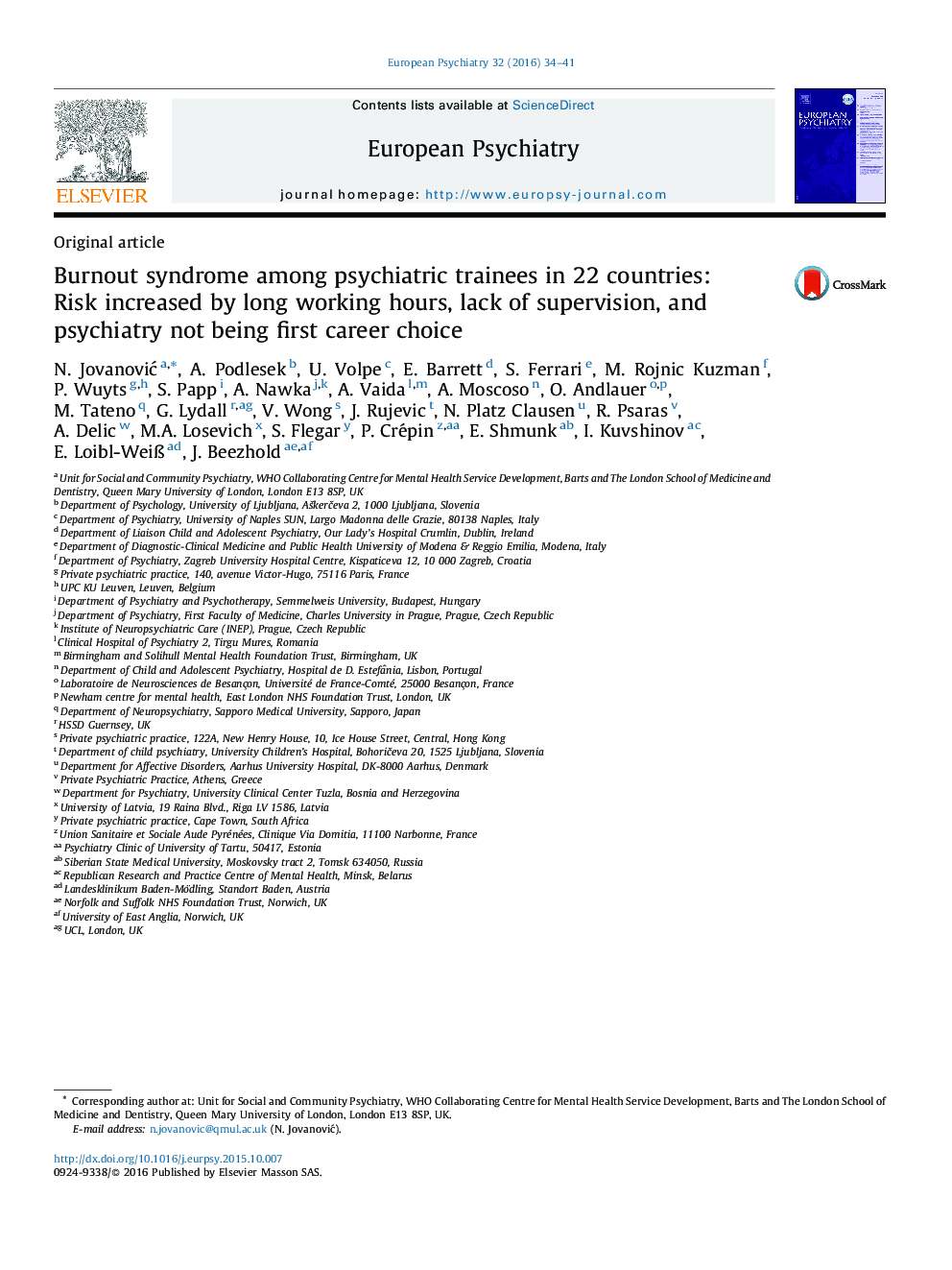| Article ID | Journal | Published Year | Pages | File Type |
|---|---|---|---|---|
| 4183577 | European Psychiatry | 2016 | 8 Pages |
BackgroundPostgraduate medical trainees experience high rates of burnout, but evidence regarding psychiatric trainees is missing. We aim to determine burnout rates among psychiatric trainees, and identify individual, educational and work-related factors associated with severe burnout.MethodsIn an online survey psychiatric trainees from 22 countries were asked to complete the Maslach Burnout Inventory (MBI-GS) and provide information on individual, educational and work-related parameters. Linear mixed models were used to predict the MBI-GS scores, and a generalized linear mixed model to predict severe burnout.ResultsThis is the largest study on burnout and training conditions among psychiatric trainees to date. Complete data were obtained from 1980 out of 7625 approached trainees (26%; range 17.8–65.6%). Participants were 31.9 (SD 5.3) years old with 2.8 (SD 1.9) years of training. Severe burnout was found in 726 (36.7%) trainees. The risk was higher for trainees who were younger (P < 0.001), without children (P = 0.010), and had not opted for psychiatry as a first career choice (P = 0.043). After adjustment for socio-demographic characteristics, years in training and country differences in burnout, severe burnout remained associated with long working hours (P < 0.001), lack of supervision (P < 0.001), and not having regular time to rest (P = 0.001). Main findings were replicated in a sensitivity analysis with countries with response rate above 50%.ConclusionsBesides previously described risk factors such as working hours and younger age, this is the first evidence of negative influence of lack of supervision and not opting for psychiatry as a first career choice on trainees’ burnout.
